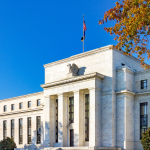- Home /
- Live Rates /
- NZD/USD
 <% signal.analyst %>
<% signal.analyst %>
 <% signal.analyst %>
<% signal.analyst %>
Last Updated: Feb 23, 2026 04:13:10 PM (GMT)
NZD/USD: The current market price is 0.597 and has changed by +0.001 from the previous close, reflecting a minor upward movement.
Support and Resistance Levels Support levels are 0.5965, 0.5960, and 0.5955, while resistance levels are 0.5980, 0.5985, and 0.5990. The pivot point is at 0.5970.
Indicators The RSI is at 45.1, indicating neutrality. ATR is 0.0011, with ADX at 43.7, suggesting strong trend momentum. The Parabolic SAR indicates a bullish trend.
Market Sentiment The market is bullish above the pivot point (0.5970), supported by strong ADX and upward trend in indicators.
NZD/USD Signals & Technical Analysis
Market Sentiment
Trend Indicators
Oscillators
Moving Averages
Pivot
About the NZD/USD (NewZealand dollar and US Dollar)
Breaking Down ‘NZD/USD
The New Zealand dollar (NZD) is the currency of New Zealand. NZD is made up of 100 cents and this currency is officially represented by the symbol $ or NZ$ to set it apart from other currencies based in dollars. we can use this currency in Cook Islands, Niue, Tokelau, and the Pitcairn Islands. this currency nickname is kiwi and the reason behind of its nickname that national bird found stamped on the one-dollar coin. The decimalization of the currency took place in 1967 when the New Zealand dollar replaced the New Zealand pound at a rate of two dollars to one pound New Zealand has a market economy that is hugely dependent on global trade, largely with Australia, the European Union, the United States, China, and Japan. It has just small production and high-tech areas, as it is mainly focused on tourism and basic industries like agriculture. in 2005 the World Bank praised New Zealand for being the most business-friendly country in the world This pair is the New Zealand Dollar vs. the U.S. Dollar. It is usually referred to as trading the “Kiwi” because the $1 coin represents the Kiwi bird. In 2012 the Reserve Bank of New Zealand occurred to decrease the Kiwi because it had appreciated so much. This currency is in the top 10 trading currencies list in the worldCurrency Correlations
Correlation is merely a mutual relationship or connection between two or more things. Positive correlation – The positive relationship merely is when pairs move in tandem with each other. In the forex world, the NZD/CAD, EUR/NZD, and NZD/JPY currency pairs are positively correlated Negative correlation – In contrast, a negative relationship is when forex pairs move in the opposite direction, For example, EUR/NZD, USD/THB, and AUD/NZD New Zealand (NZD) has a close relationship with gold prices and oil prices. While the correlations (positive or negative) can be significant Economic Events: The movement in the NewZealand dollar and US Dollar economic events determine the exchange rates. Top of the line economic events includes GDP, Employment Change, Industrial Production, and Consumer Price Index. Better than forecast data increases the demand for related currency and impacts the value of either the Australian dollar or the Japanese yen, causing fluctuations in the NZD/USD exchange rate.Major Economic Events
Gross Domestic Product – the gross domestic product is the central measure of economic growth in the region. Employment Change – The Sterling is also sensitive to changes in employment, as slacks in the labor market causes a drop in Inflation rates. Consumer Price Index – Since one of the goals of the BOP is to maintain price stability, they keep an eye on inflation indicators such as the CPI. If the annual CPI deviates from the central Industrial Production – This measures a change in the total inflation-adjusted value of output produced by manufacturers, mines, and utilities. Political Events - Another critical factor is the political aspect. Instability, as seen in the Brexit referendum, can entirely change the direction of the currencies. So, stay up-to-date on the latest political and economic news.What Determines the NZD/USD exchange Rate?
Several factors can impact the NZD/USD rate valuation, including: RBNZ and FRS Monetary Policies: Reserve Bank of New Zealand and the Federal Reserve System controls the supply of money in the market, to keep the economy on track. A dovish policy, which is also known as expansionary policy, from either of the central banks, weakens the related currency. In contrast, a hawkish monetary policy (contractionary policy) strengthens the currencyNZD/USD Specifications
The NZD/USD is traded in amounts denominated in the US Dollar. Standard lot Size: 100,000 Mini lot size: 10,000 One pip in decimals 0.0001 Pip Value: $10.00NZD/USD is a popular currency pair, as it features two of the world's most commonly traded currencies. It is an attractive trading pair because both of its components have different interest rates and inflationary cycles, which can create profitable opportunities if traders are able to accurately predict their relative movements. The NZD/USD pair often experiences volatile swings due to international news events or economic releases that affect both countries differently. Many traders find this volatility appealing as it offers an opportunity for quick profits in the short term. Additionally, when compared to other major pairs such as EUR/USD and GBP/USD, NZD/USD typically has lower spreads and a tight bid-ask spread which can make it more cost-effective for traders who are looking to take advantage of small changes in price.
The NZD/USD exchange rate is currently bearish. This means that when you buy 1 US Dollar, you will receive fewer New Zealand Dollars in exchange. The current trend of the pair is downward, with the US Dollar strengthening and the New Zealand dollar weakening against it. This can be seen in its recent price movements as well as from technical analysis such as studying candlestick patterns. It is important to keep in mind however that market conditions can change quickly and this trend may not last long-term so it's best to do your own research before making any investment decisions.
The exchange rate of the New Zealand Dollar (NZD) against the US Dollar (USD) is constantly fluctuating. Currently, the NZD is slightly stronger than USD compared to what it was several months ago. However, given recent market fluctuations and economic uncertainty, it is difficult to predict with certainty whether or not this trend will continue in the future. Therefore, investors and traders should carefully monitor exchange rates and make their own informed decisions accordingly.
1. Interest rates: Changes in interest rates can affect the demand for a currency and its exchange rate relative to other currencies. The higher the interest rate, the more attractive it is to invest in that particular currency, creating more demand and driving up its value. Therefore, when New Zealand's official cash rate rises or falls compared to that of the United States Federal Reserve, this can have a positive or negative effect on NZD/USD exchange rates.
2. Economic performance: The economic performance of both countries also has an influence on their respective currencies' values - if one country's economy is outperforming another's, then investors may be more confident about investing in that nation’s currency over another's, leading to an improvement in its exchange rate.
3. Geopolitical factors: Of course geopolitical events and news from either side of the Pacific Ocean can affect investor sentiment and thus cause fluctuations in NZD/USD exchange rates too - if any unexpected events are likely to occur then this could lead to instability as investors look elsewhere for safer investments with less risk attached; this would result in downward pressure on NZD/USD prices as traders offload it quickly before prices fall further still!
4. Global markets: Finally global stock market movements will have a knock-on effect on currency markets as equity traders shift their funds around accordingly; when global stocks decline for example due to fears of an impending recession or trade wars then usually ‘safe haven’ assets like gold become increasingly sought after instead – these same movements will push down USD & NZD valuation and thus reduce their pair’s worth too!
Indicator Alert
Warning: Several indicator values are missing for this timeframe. Please choose another timeframe to continue.
Sidebar rates
- <% signal.pair %>



